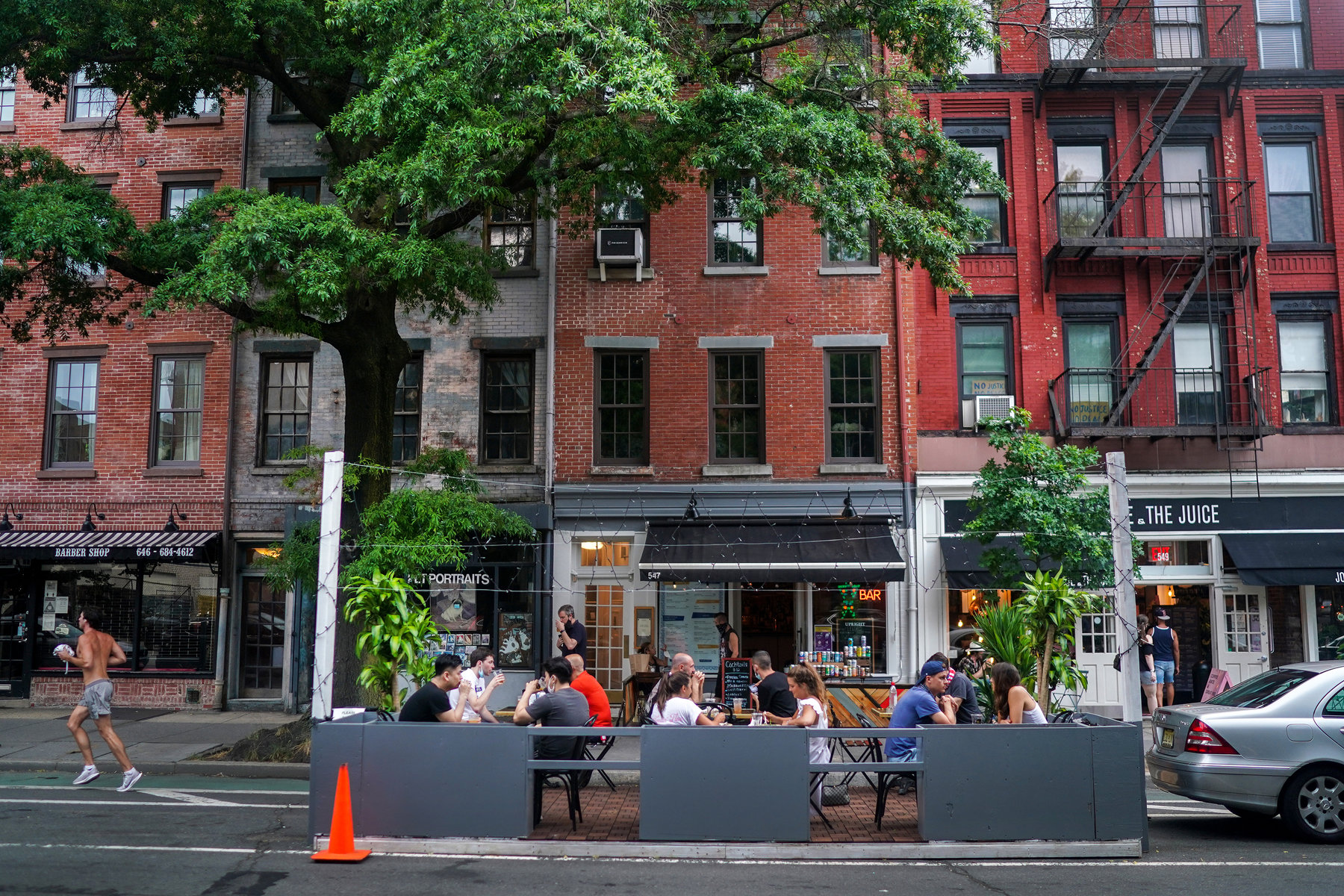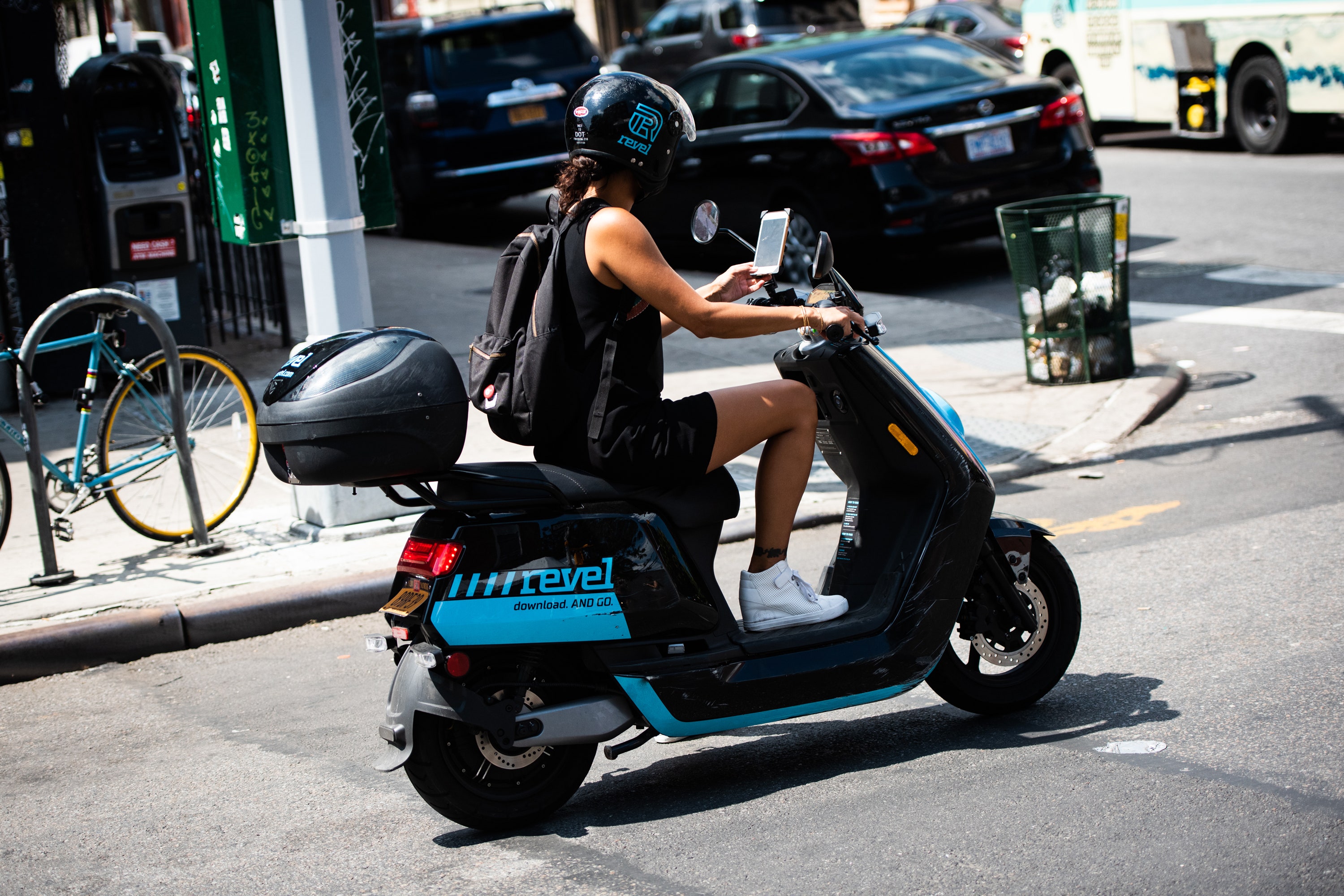Ok, so you’ve got your Stern admission letter and your F1 visa and you’re finally ready to move to New York City! Since you’ve never met anyone from New York who didn’t think this was the best city on earth, you’re feeling pretty good about the move. But if you are still wondering what to expect, this post is for you. It covers what I’ve learned in my first 3 months here as a Frenchman, tips on how to successfully transition as a non-American, and odd things I’ve noticed.
A bit about me-
My name is Luc, I grew up near Paris, lived for a year in Houston before college, studied for 3 years in Montreal for my bachelor’s, and I had been working in Shanghai for 9 years prior to coming to Stern. My background is entrepreneurship: 8 years of early stage tech startups, 5 as founder/ceo, followed by some consulting. My experience with NYC was close to none before I moved here 4 months ago.
Apartment hunting-
Units are usually available right away so you can find an apartment in the 2 weeks leading up to your move-in date (it took me 5 days). There are a few online platforms recommended by NYU when it comes to looking for an apartment. If you’re going to use Facebook housing groups, I recommend doing background checks before you sign anything (I dodged a scammer on a Facebook group by doing a reverse Google image search of the photos on the listing). It showed me that the NYC apartment I had selected was also listed in Paris … no wonder the “landlord” didn’t want to turn on her video when we talked!
In my case, StreetEasy got me there and I recommend using this instead. Word of caution if, like me, you are booking your apartment after a virtual visit: video tours are not the same as in person. You cannot control what is shown or get an accurate sense of the size, the view, the noise, etc. So ask if you can commit for only 3 months with the option to extend at the same rate for the rest of the year. The market has gone way down since COVID, so the landlord might agree. My apartment ended up having zero natural light and I was glad to have the option to move out after 3 months. Note that most listed apartments are not furnished, but if you message the agents on the website they might have other unlisted apartments available that are furnished, or have available furniture in storage to give you. In my case, the agent provided me with a bed and a sofa free of charge and I bought the other cheaper furniture on my own. Another option is to rent furniture: you can get a good bed and sofa for as low as $100/month if signing for 12 months (e.g. livefeather.com, cort.com, casaone.com and others).
Where to live-
There are a lot of differing opinions on the topic. A lot of my classmates live in the West Village and everyone loves it. It feels a bit more European and there are a lot of good spots, but it’s a bit pricey. The East Village and Lower East Side are great options as well (I live on the border of the two). The area is a bit more grungy in my opinion, but has lots of great bars and restaurants. If you don’t mind the commute I’m a big fan of Brooklyn (Fort Greene, Boerum Hill, Cobble Hill, Prospect Heights, Greenpoint, Williamsburg): I like the smaller buildings, the sense of community I get walking its streets, and the welcoming and unpretentious vibe. I also have a classmate who lives in Jersey City right across the river with a beautiful view of the Hudson River, and it takes him just 20 minutes to get to campus.

Services-
Once you have your place you’re going to have to figure out a data plan, internet, utilities, and a bank.
Phone plan: Assuming you already have a phone, the best value I found is AT&T’s 12-month prepaid plan, at $25/month + tax for 8GB of data. There’s a catch though: it’s available only online and you need to already have a US phone number to order… your US number…. I was tricked into paying for a 1 month plan at a physical store just so I could order the prepaid 12-month plan online. If I were to do it again, I would get a temporary Skype US number and use that to order instead.
Internet: In theory there are two options, Verizon FiOS and Spectrum. But they cover different areas of NYC so you end up being forced to subscribe to the available supplier for your apartment. You can use your NYU email to get 2 months free with Spectrum, but then it’s $55/month for wifi for the first year and $70 after that. Although I’m told you can call back at the end of the year to get the ‘new customer’ discount again.
Utilities: Another monopoly. I hope your activation on ConEdison’s website goes smoothly as they’re difficult to reach via phone. Your landlord or agent should tell you what you need to do for utilities.
Bank: I pre-opened an HSBC account from abroad (not available in some countries like China so you’ll have to check) and then applied in-person for their credit card when I arrived. You’ll want to get a credit card because it allows you to build your credit history (without which it’ll be hard to finance anything in the US), and because it’s the only type of card that works in all situations, 100% of the time (for some reason my debit cards are a hit or miss). Until I had my credit card, I used Revolut, which offers free payments and free currency conversions. Note that if you’re using an international card and the POS machine or ATM asks for a zip code, enter 00000.
Transportation-
Most people I’ve met like to walk. If that‘s the case for you, you’ll have a great time here. I don’t like walking much, so I’ve explored different options:
Options:
- Metro & buses: $2.75 a ride, but you can transfer for free (e.g. metro to bus). There’s no need to buy MetroCards as you can tap your credit card to enter the station. Public transportation will take you anywhere, but it will take time: I find that I tend to have to wait for the next train or bus, and there’s still walking to be done when you arrive at your destination.
- Revel: $1 unlock fee + $0.49 per minute. I love Revel as I used to ride an electric moped every day in Shanghai. These are particularly fast and good. The downside is that it’s relatively expensive (my rides have been $8-10) and you might spend a few minutes looking for a legal spot to park. They accept international driving licenses. The mopeds have a phone holder built-in which is super convenient for using google map. I heard that Revel is starting to rent out electric bicycles for $100 a month as well.
- Citi Bike: $3.50 a ride. Good if you can find an electric one, bad if you can’t: the bikes are super heavy and slow. You can book those directly from the Lyft app, too. I’m told that there are subscription plans available if you like City Bike.
- Uber/Lyft: More comfortable and expensive. Good to get back home after a night out.
My personal recommendation:
Buy an electric scooter or electric longboard for as low as $350 (or a bicycle). My longboard takes me to most places in 10 minutes. I can take it on the metro or on top of a Revel if I’m going far so it combines well with other forms of transportation. You can even ride across the bridges to Brooklyn. Getting a scooter is both safer and more comfortable than skateboarding because the roads in NYC are quite bad (rough pavement with bumps, iron railings, and holes), especially the bike lanes! Then use Revel when it’s nice out!

Odd things I’ve noticed-
Dogs: (NYC) Americans love dogs. I mean LOVE dogs. I mean you’ll go to some dinners where people will spend a full hour talking about their dogs. If you’re taking a class on Zoom and someone’s dog enters the field of view, the class will stop until classmates and instructors are done commenting on how cute that dog is (and yes, all of the dogs are cute).
Prices: Don’t trust them. All the prices you’re given here are deflated. You’ll need to add taxes, and tips if it’s food or drinks. A typical restaurant bill is 30% higher than previously stated. You might need a calculator to figure out the tip, usually 18-20% of the pre-tax amount given.
Messaging apps: Not everyone uses the same messaging app. Most people have iPhones and use iMessage so they may not use WhatsApp. Regular SMS, Facebook messenger, Signal, and Discord might also be used to communicate with different people. This was odd to me given how everyone uses WeChat in China no matter what phone they have.
Cash: It’s still a thing here. Even coins. Actually, your laundry might not be inside your apartment, so you’ll need to go to your bank to get lots and lots of quarters to operate the machines in your building or at your nearest laundromat. Many smaller businesses refuse credit cards until you reach a certain $ minimum, and I haven’t seen mobile payments being used here yet.
Note that as a result, it takes a lot of time to pay at a restaurant. So instead everyone paying, what happens is 1) only 1 person at the table pays for everyone (yay, credit card points!). 2) Another person usually volunteers to divide up the amounts, goes back home and uses a spreadsheet to proportionally divide the tax and tip, and texts everyone how much they owe. Then 3) you’ll have to download Venmo and link it to your US bank account to pay that first person back. Teamwork.

I hope this was helpful to get you situated in NYC and that you’re excited; this is going to be a fun ride. Please reach out to me with any questions at mbaga@stern.nyu.edu.
